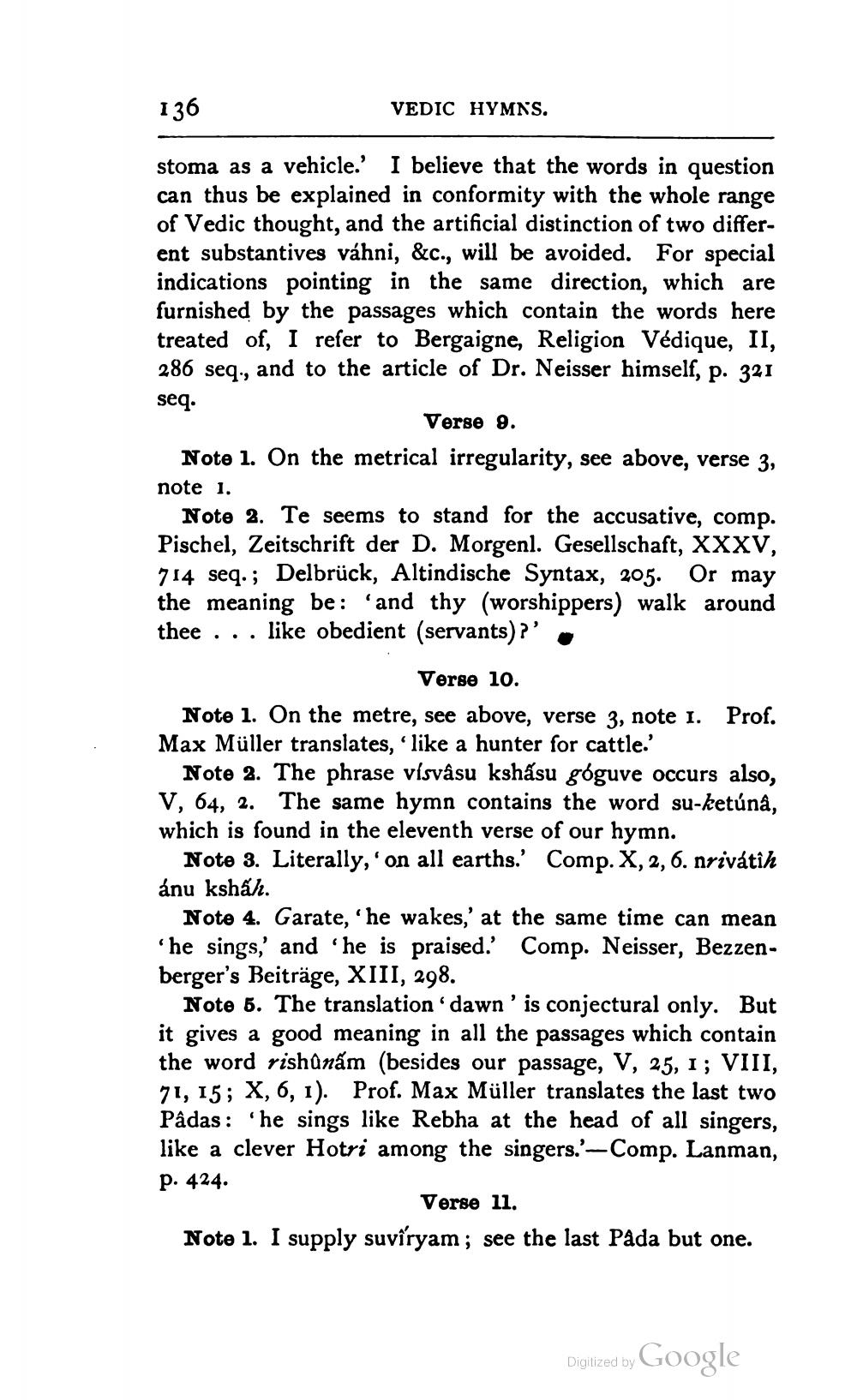________________
136
VEDIC HYMNS.
stoma as a vehicle. I believe that the words in question can thus be explained in conformity with the whole range of Vedic thought, and the artificial distinction of two different substantives váhni, &c., will be avoided. For special indications pointing in the same direction, which are furnished by the passages which contain the words here treated of, I refer to Bergaigne, Religion Védique, II, 286 seq., and to the article of Dr. Neisser himself, p. 321 seq.
Verse 9. Note 1. On the metrical irregularity, see above, verse 3, note 1.
Note 2. Te seems to stand for the accusative, comp. Pischel, Zeitschrift der D. Morgenl. Gesellschaft, XXXV, 714 seq.; Delbrück, Altindische Syntax, 205. Or may the meaning be: 'and thy (worshippers) walk around thee ... like obedient (servants)?' .
Verse 10. Note 1. On the metre, see above, verse 3, note 1. Prof. Max Müller translates, like a hunter for cattle.'
Note 2. The phrase visvâsu kshấsu góguve occurs also, V, 64, 2. The same hymn contains the word su-ketúna, which is found in the eleventh verse of our hymn.
Note 3. Literally,'on all earths.' Comp. X, 2, 6. nrivátih ánu kshah.
Note 4. Garate, he wakes,' at the same time can mean 'he sings,' and 'he is praised.' Comp. Neisser, Bezzenberger's Beiträge, XIII, 298.
Note 5. The translation'dawn 'is conjectural only. But it gives a good meaning in all the passages which contain the word rishûnám (besides our passage, V, 25, 1; VIII, 71, 15; X, 6, 1). Prof. Max Müller translates the last two Pâdas: 'he sings like Rebha at the head of all singers, like a clever Hotri among the singers.'--Comp. Lanman, p. 424.
Verse 11. Note l. I supply suvíryam ; see the last Pada but one.
Digitized by Google




